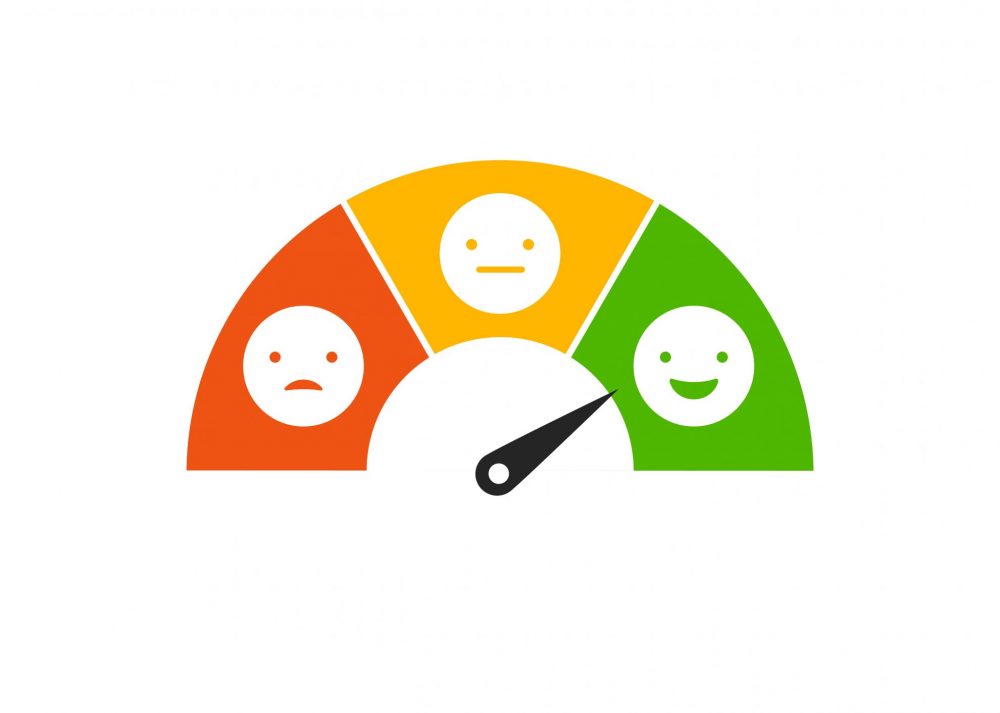Feeling overcome by your emotions can be stressful, especially when you’re at work. Whether a co-worker said something that upset you, or you took negative feedback a little too personally, it can be challenging to stay calm and think through a situation when intense feelings take over. Emotions can catch you by surprise — but new research suggests they may be easier to control than you think.
A new study from Stanford University reveals that our motivations play a bigger role in the regulation of our emotions than previously thought — what’s more, we also have greater control over how others influence our emotions, too. The research, published in the Journal of Experimental Psychology, showed that the way we want to feel can impact the way we actually do; study participants who wanted to stay calm remained relatively relaxed in the face of angry people, whereas those who wanted to feel angry were highly influenced by angry individuals.
“The degree to which people said they were motivated to feel or not feel certain emotions predicted how much they would be influenced when they were exposed to emotions from other group members,” Amit Goldenberg, the lead author on the study and a Stanford doctoral candidate in psychology, says.
So what does this mean if you want to experience greater emotional stability at work? Check out these strategies to better regulate your emotions in the workplace, and ultimately reduce your stress levels.
Regularly assess your environment
A simple way to proactively regulate your emotions — and stress — at work is to think about the kind of environment you want or need to be in, and situate yourself accordingly. “The best way to regulate your emotions is to start with the selection of your environment. If you don’t want to be angry today, one way to do that is to avoid angry people,” Goldenberg says. Although you of course can’t avoid a negative colleague all the time, you can, for example, find a quiet place to answer emails if a co-worker’s bad attitude is beginning to have a negative impact on yours. If you have to work with someone who negatively influences your emotions, use empathy and compassionate directness to address the situation. If a colleague is upset about something, try saying something like, “I know you aren’t having the best day, but let’s work together to put that aside for the time being and focus on our meeting.”
Ask yourself questions
In order to better regulate your emotions, you need to gain greater awareness of the relationship between your thoughts, emotions, and behavior. Abigail Rolston and Elizabeth Lloyd-Richardson, Ph.D., from the Cornell Research Program on Self-Injury and Recovery recommend asking yourself a series of questions. They suggest personal inquiries like: Which emotions are hardest for me to tolerate? Which behaviors do I tend to use to calm down those feelings? How well do these strategies work? Do I want to use these behaviors? By becoming more in tune with your emotional responses, you can recognize patterns and better prepare yourself to cope with specific stressful situations.
Set an intention for the day
Setting an emotional intention for your day can also help you navigate stressful situations at work. Goldberg says that you can motivate yourself to feel a specific way — calm, for example — even when the people around you feel differently. When you wake up in the morning, try setting an emotional intention for your day. Setting an intention to feel grateful, content, or calm, will help you stay motivated in the face of negative emotions.
Hone in on healthy habits
Diet, exercise, and sleep habits can also play a role in your ability to regulate emotions. Rolston and Lloyd-Richardson recommend getting adequate sleep each night, eating a healthy diet, and exercising regularly to further refine your emotion regulation abilities. By making simple, healthier lifestyle choices, “it can be as though you have an entirely fresh perspective on life, and it is much easier to overlook the little things that might have annoyed or upset you otherwise,” Rolston and Lloyd-Richardson say.
Follow us here and subscribe here for all the latest news on how you can keep Thriving.
Stay up to date or catch-up on all our podcasts with Arianna Huffington here.


